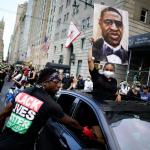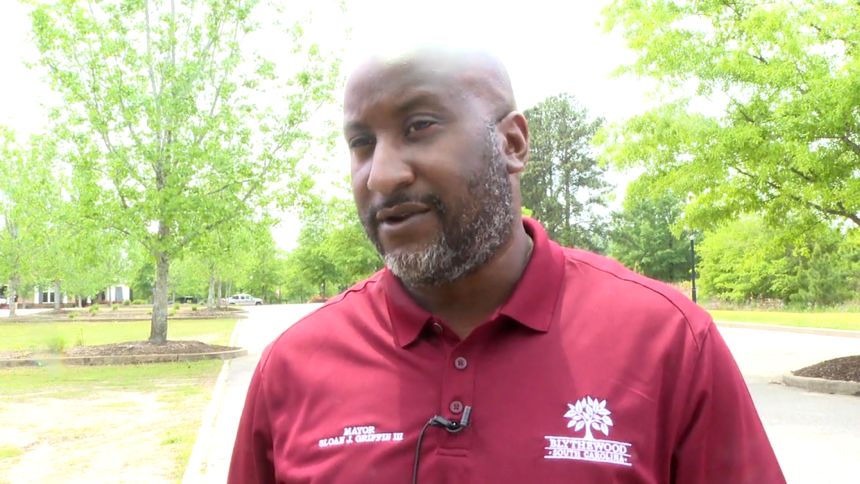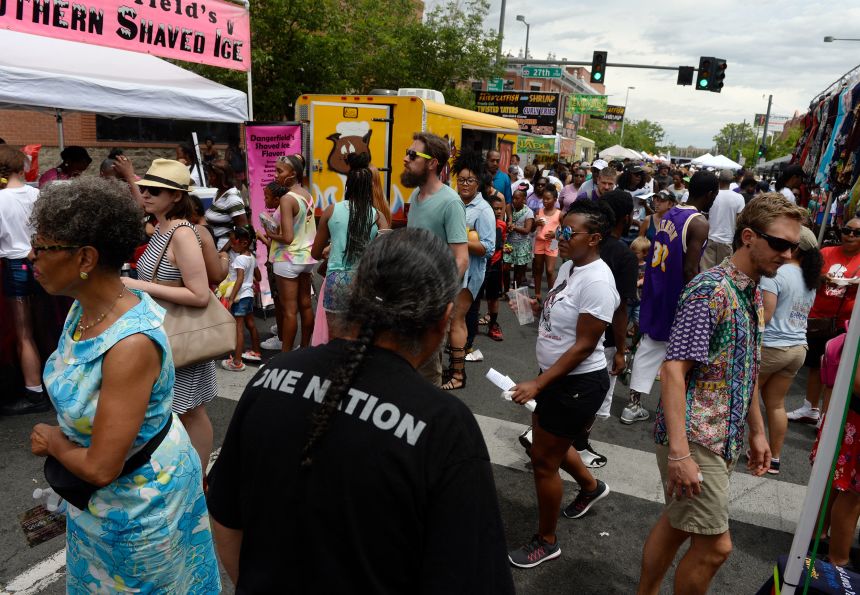How Cities Are Scaling Back Juneteenth Celebrations After Trump-Era DEI Rollbacks

Despite Juneteenth’s status as a federal holiday, celebrations across the country are being scaled back or canceled. Organizers say safety issues along with mounting resistance to diversity, equity and inclusion initiatives are making it harder to hold events – raising concerns that political backlash is threatening the commemoration of Black freedom at a time when experts say it is most needed.
“What we’re seeing – businesses pulling back and universities canceling programs in response to attacks on DEI – shows that many institutions and corporations were never truly committed to diversity and inclusion,” said LaTasha Levy, a professor of Afro-American Studies at Howard University, a historically Black university in Washington, DC. “We’re not even being honest about what DEI really stands for.”
Juneteenth is the oldest regular US celebration of the end of slavery. It commemorates June 19, 1865 – the day that Union Army Maj. Gen. Gordon Granger rode into Galveston, Texas, and told a group of slaves that the Civil War had ended and they were free - more than two years after President Abraham Lincoln signed the Emancipation Proclamation.
President Donald Trump tried to take credit for making Juneteenth “very famous,” saying during his first term in 2020 that, “nobody had ever heard of it.” His comments came while the nation was reeling from ongoing civil unrest after George Floyd’s death at the hands of Minneapolis police officers.
But Juneteenth didn’t become an official holiday until 2021, under President Joe Biden’s administration – the first holiday to be approved since Martin Luther King Jr. Day in 1983. Experts say this happened in part due to a racial pandemic - with the killings of Ahmaud Arbery, Breonna Taylor and Floyd in the same year as the global Covid-19 pandemic.
Since his reelection, Trump has made the elimination of DEI programs a centerpiece of his administration, cracking down on diversity efforts in the federal government with a series of executive orders.
Pentagon intelligence agency halts cultural observances, citing DEI restrictions
In January, the Defense Department’s intelligence agency paused observances of cultural or historical annual events – like Juneteenth – in response to Trump’s ban on diversity, equity and inclusion programs in the federal workplace, the Associated Press reported.
In a statement to CNN earlier this month, chief Pentagon spokesman Sean Parnell said the agency is “proud of our warriors and their history,” but will focus “on the character of their service instead of their immutable characteristics.”
“Our unity and purpose are instrumental to meeting the Department’s warfighting mission. Efforts to divide the force – to put one group ahead of another – erode camaraderie and threaten mission execution,” Parnell added.
The impacts of the federal rollback of DEI practices have begun to trickle down to local communities. Several areas across the country have canceled or scaled back celebrations for the holiday, citing safety concerns, mixed feedback from the community and other issues.
Reggie Johnson, president of the NAACP Metuchen Edison Piscataway Area Branch in New Jersey, said he had to move his organization’s annual Juneteenth celebration to a smaller location after staff at the federal site where it was previously held expressed uncertainty about hosting it.
“The contractors misinterpreted our event as a DEI initiative,” Johnson said. “They didn’t want to risk having it and losing it because of Trump’s interpretation of Juneteenth.”
Five days later, Johnson said, federal staff called back to say the event would be allowed. But by then, he had already secured another space.
A museum in Fredericksburg, Virginia, had to scale back its Juneteenth celebration because it could no longer access its National Endowment for the Arts funding.
“Our Juneteenth Grant was officially retracted on April 29th-well after planning begun for this year’s festivities,” the president and CEO of the Fredericksburg Area Museum, Sam McKelvey, told CNN in an emailed statement this week. “We are still holding a much smaller event with the museum in the red but the community has stepped up for us and allowed us to make it still happen.”
While eliminating a federal holiday would require an act of Congress, experts warn that any dilution of the holiday celebration is cause for concern.
“Most Americans don’t have a kind of deep knowledge of Juneteenth, but even that, what they know, will disappear,” Robert Bland, assistant professor of history and Africana studies at the University of Tennessee, said.
Cancelations across the country
Blythewood, South Carolina, Mayor Sloan J. Griffin III was elected in 2023 to a town of about 4,772 people – being only the second Black person to do so.
This year, he was the only member of the town council to vote in favor of holding Juneteenth and Fourth of July events. In May, the town’s Facebook page said the cancelations were “due to safety concerns,” something that the mayor attributed to unprecedented population growth.
Blythewood recently had two incidents where teenagers were involved in fights, which led to an event being canceled. Griffin also noted that there was a recent shooting around 2 a.m., involving minors who were out after prom.
Still, Griffin said he knows how important the celebration of Juneteenth is and added that with his background in public safety he’s used to coming up with multiple solutions to tackle a problem.
South Carolina is a state with a complex history when it comes to race. It’s home to Charleston, one of the nation’s top travel destinations, but also a city plagued by its sordid past built on the unpaid labor of African men and women who were kidnapped, beaten, raped and enslaved. The state was the site of one of the nation’s most racially motivated attacks in recent history and was among the last to recognize Martin Luther King Jr. Day as a paid holiday.

Blythewood, South Carolina Mayor Sloan J. Griffin III WACH
“I was the one that really started the Juneteenth piece here,” the mayor said, noting he was a council member at the time and supported commemorating the holiday. “When we talk about Juneteenth in the history of the heritage, it is important that we never we never forget the past … but we also embrace the future and regenerate that burning desire that our parents and grandparents had in the 60s, to change things.”
A former 2nd Ward alderman for the city of Plano, Illinois – the first city in the state to adopt Juneteenth as a holiday – agrees.
“I really think that it’s an opportunity for us to tell our story, without being interrupted,” Jamal Williams said. “We are now in 2025 and we’re still talking about first, the first African American to do this … You know, we’ve been free for a long time.”
Williams says he was the first Black member of the city’s council. His last day serving as an alderman was last month. For years, he’s helped organize Juneteenth events in the Plano community, including one in 2022 that drew about 1,100 people.
That number dropped to less than half – roughly 500 people – in 2024, according to Williams. This year the former alderman decided not to hold an event in Plano after a lack of sponsors looking to participate – though he is supporting an event in nearby Yorkville, a few miles away.
“I got labeled as someone that only wanted to support the Black community, not necessarily the people in Ward 2, which I was elected to do,” Williams said.
Another Juneteenth-related event across state lines was also canceled, as Indy Juneteenth in Indianapolis announced it would pause its parade but still hold several events to observe the holiday. The event’s executive director said he tried to explore other options to keep the parade going.
“We were ultimately denied by public safety officials due to reported concerns from nearby residents, despite similar events taking place in that area in the past,” Executive Director James Webb told CNN.
An organization that typically hosts a Juneteenth event at a local park in Bend, Oregon, said it was postponing this year’s celebration – citing growing racial tensions and threats.
And in Denver, the annual Juneteenth Music Festival was scaled back to a single-day event after several major sponsors either pulled out or reduced their contributions this year.

Crowds gather along Welton Street in Five Points for the Juneteenth Music Festival on June 17, 2017 in Denver, Colorado. Organizers say its one of Denver's longest running parades dating back to the 1950's where "nearly 3,000 people march to honor the struggles and social progress achieved through marches and demonstrations organized for freedom, justice, and equality in our country's history". Kathryn Scott/Denver Post/Getty Images
Norman Harris, the festival’s lead organizer, said the loss of support was abrupt and came without a clear explanation.
Educators caution against conflating DEI with historical remembrances of holidays like Juneteenth.
“DEI efforts and historical remembrance celebrations are two totally different things,” inclusive leadership educator and scholar Toby S. Jenkins said. “Fourth of July is not DEI, even though it celebrates freedom from political oppression. Memorial Day isn’t DEI, even though it honors a protected population, our veterans.”
Still, some say the scaling back and cancelations of these events paints a picture of how much work still needs to be done.
“I think it really affirms what we’ve already known. There are too many entities in our country who are not serious about freedom and liberation,” Levy said.
“I would really just hope that Black people, wherever they are, use it as an opportunity to connect, to build, to plan, for our future like we’ve always had to do, and to return to those traditions and strategies and wisdom of our ancestors of what to do in these moments of repression and hate,” Levy added.
CNN’s Nicquel Terry Ellis and Piper Hudspeth Blackburn contributed to this report.
